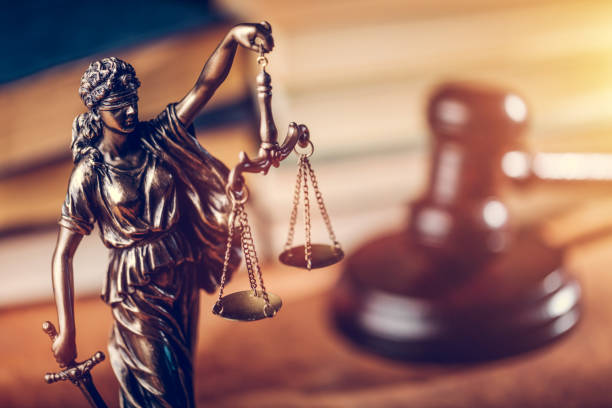"Deciphering Complexities: The Role of Judicial Review in Democratic Governance"
Judicial review, a cornerstone of democratic governance, often sparks intense debates. This article delves into its evolution, recent developments, and implications for our society, illuminating the critical role it plays in maintaining the rule of law.

The Genesis of Judicial Review
The concept of judicial review originated in the United States with the landmark Marbury v. Madison case in 1803. The U.S. Supreme Court, led by Chief Justice John Marshall, established the judiciary’s authority to review and invalidate laws deemed inconsistent with the constitution. This decision set the precedent for judicial review, transforming the judiciary into an active participant in shaping the nation’s legal landscape.
Judicial Review in Contemporary Times
In recent years, judicial review has gained increasing relevance as courts around the world grapple with complex legal issues. From debates on environmental regulations to disputes over executive powers, judicial review has been instrumental in defining the limits of governmental authority. Today, it is an indispensable part of democratic governance, serving as the ultimate safeguard of constitutional rights and liberties.
The Impact of Judicial Review on Legislative Process
The exercise of judicial review can profoundly affect the legislative process. When a law is struck down as unconstitutional, it compels the legislature to revisit the policy, reassess its merits, and reformulate it in a manner consistent with constitutional mandates. This dynamic interaction between the judiciary and the legislature fosters a system of checks and balances, a fundamental feature of democratic governance.
Implications for Society
The implications of judicial review for society are far-reaching. By ensuring that laws adhere to the constitution, it upholds the rule of law, protects individual rights, and promotes social justice. Yet, it also raises questions about the balance of power and the role of courts in policy-making. Critics argue that it may lead to judicial activism, where judges assert excessive authority over the legislature. The challenge, therefore, lies in maintaining the delicate equilibrium between judicial independence and democratic accountability.
Recent Developments and Future Outlook
Recent developments in the realm of judicial review reflect the evolving nature of democratic governance. Several countries, including the UK and Canada, are reevaluating the scope and function of judicial review in their legal systems, signaling a potential shift in the balance of power. As societies continue to grapple with emerging legal challenges, the role of judicial review is likely to become even more significant.
In conclusion, judicial review is a vital tool in preserving democratic values, fostering accountability, and upholding the rule of law. Its practice, while complex and sometimes contentious, is instrumental in shaping our legal landscape. As we move forward, a nuanced understanding of judicial review and its implications is crucial in navigating the complexities of democratic governance.




